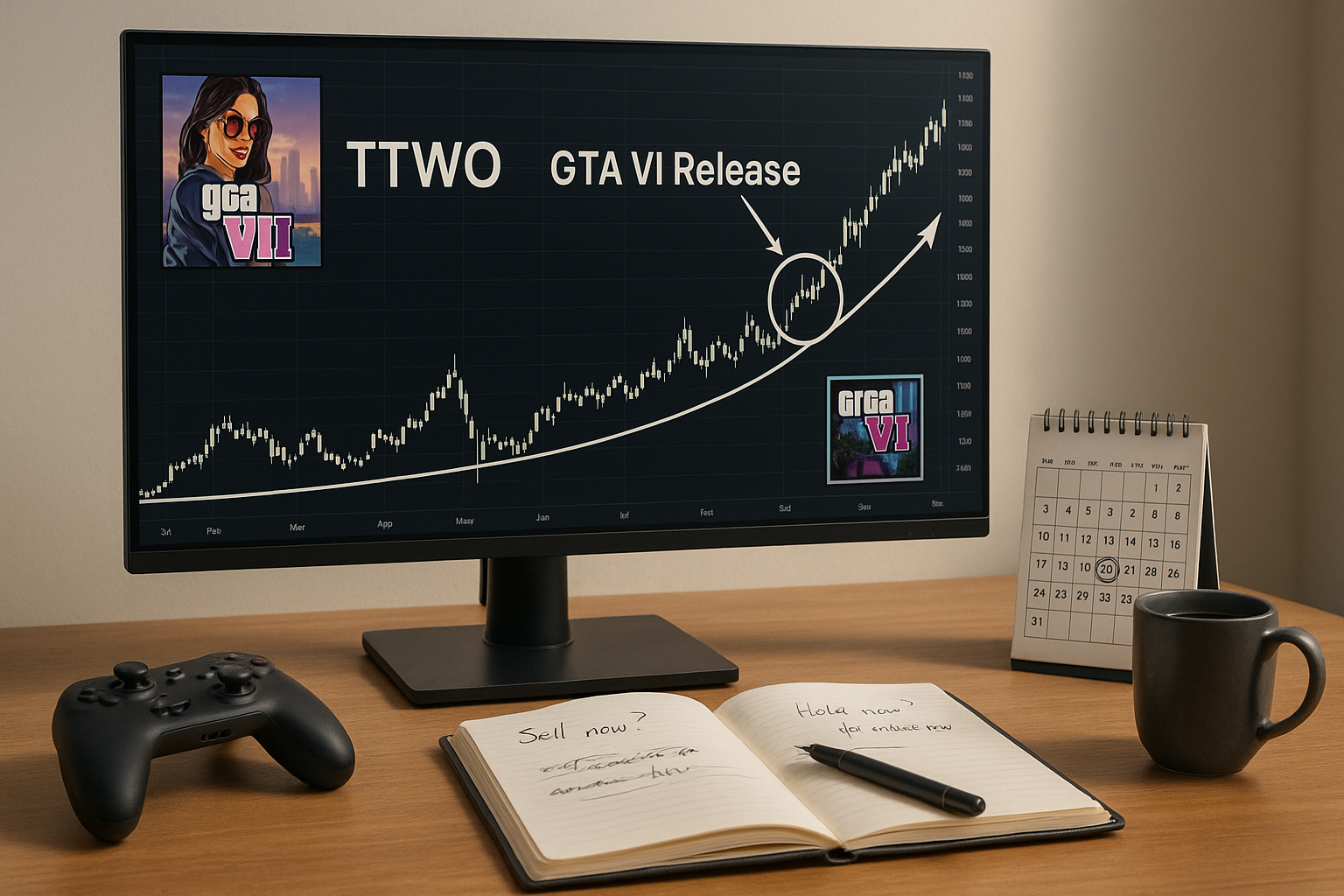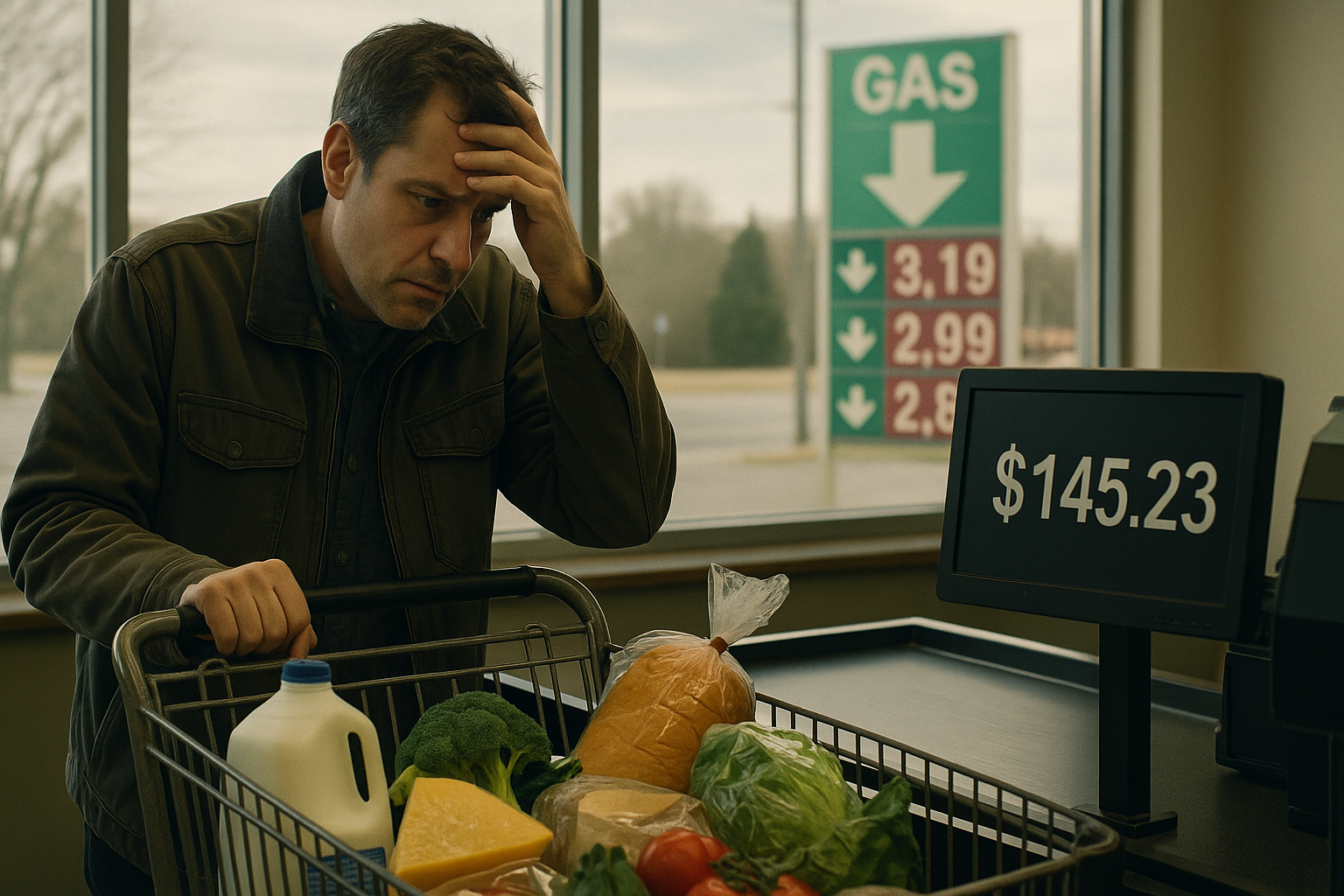The gaming world's equivalent of Godot has investors practically salivating. Grand Theft Auto VI—perhaps the most anticipated entertainment product in history—has turned Take-Two Interactive stock into what many retail investors see as their personal cheat code to riches.
I recently fielded a question from a reader who admitted they're "investing heavily into T2 for a big payout once the highly anticipated new GTA game releases." Simple question: when's the perfect time to cash out?
It's the classic "obvious catalyst" investment thesis. Seems logical, right? Massive game + rabid fanbase = stock goes brrr. But here's the thing—markets rarely reward the obvious, at least not in the tidy package most investors expect.
Look at the GTA V release back in 2013. Take-Two shares had already climbed about 30% in the three months before launch. And on release day itself? The stock actually dipped. The following month? Basically went sideways. This pattern—pre-release excitement followed by "meh" trading—plays out consistently across entertainment and tech launches.
Finance types call this "pricing in the news." I call it the "yeah, we all saw that coming" effect.
What makes the GTA VI situation particularly fascinating (and potentially treacherous) is the extended timeline. Rockstar has stretched GTA V's lifespan to nearly a decade through its online component, while GTA VI has languished in development hell for years—with release still possibly a year away. That creates an unusually long window where the stock trades more on Reddit rumors than actual financials.
I tend to break down market knowledge into three buckets: 1. "Everyone knows" info (GTA VI will sell like crazy) 2. "Smart money knows" info (development budgets, launch timing) 3. "Nobody knows" info (will it have game-breaking bugs? will some content trigger controversy?)
The edge comes from figuring out which category various pieces of info fall into, and where the market's getting it wrong.
So what's the play? Several approaches make sense, depending on your investment style:
The Anticipation Seller: Bail before actual release when the hype machine is at maximum overdrive but before any possible disappointments. This essentially trades the marketing cycle, not the product.
The Post-Review Evaluator: Wait for actual reviews and initial sales data. Sure, the market's processing this simultaneously, but at least you're dealing with facts, not speculation.
The Long-Term Holder: Recognize that Take-Two's real value isn't just in initial sales. GTA Online has generated billions in recurring revenue. If GTA VI follows suit (and you bet it will, probably with even more aggressive monetization), the real payday unfolds over years, not weeks.
The Options Player: For those comfortable with more sophisticated instruments, options strategies can capitalize on release volatility without making a pure directional bet.
Having covered gaming stocks since the PS3 era, what fascinates me about Take-Two is how a single product can so dramatically sway a public company's valuation. While EA and Nintendo spread risk across multiple franchises, Take-Two remains unusually dependent on Grand Theft Auto. Yes, they have other valuable properties (Red Dead Redemption, NBA 2K), but GTA is the undisputed crown jewel.
If our eager reader asked me directly (which, well, they did), I'd suggest a staggered approach: trim some position as release approaches to capture the anticipation premium, hold some through launch for any upside surprises, and maintain a core position for the long-term online revenue story—assuming that's a thesis you believe in.
Because here's the thing—the gaming industry isn't a unit-sales business anymore. It's a player engagement business. The most valuable customer isn't the one who buys the game on day one; it's the one still playing (and spending) three years later.
And that might be the most important insight for our Take-Two investor friend: you're not just betting on a game launch; you're betting on a digital ecosystem designed to extract value from players for years to come. Whether that makes you feel better about your investment or slightly queasy about the industry's direction... well, that's a question for another column.




